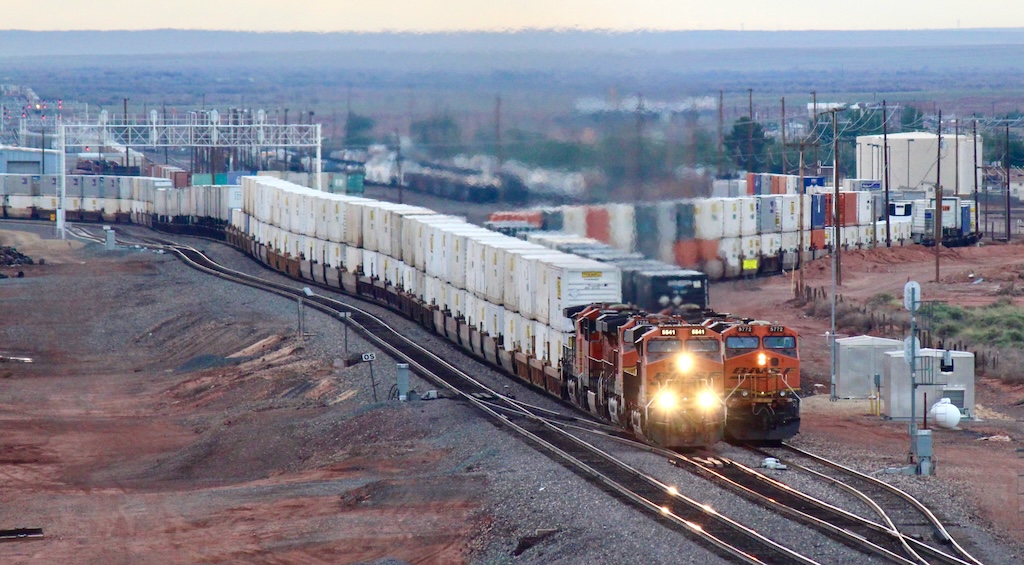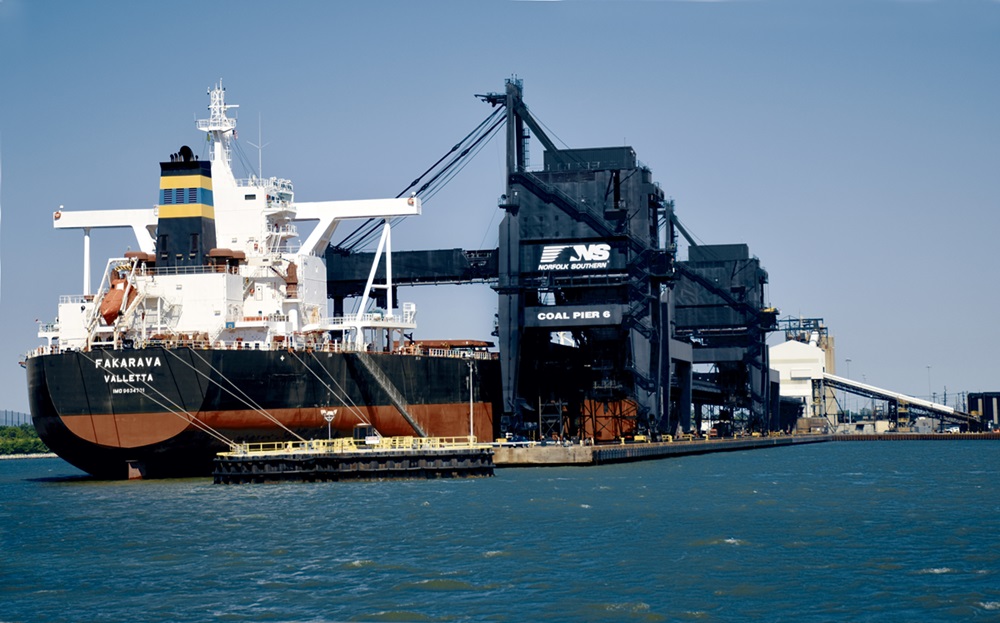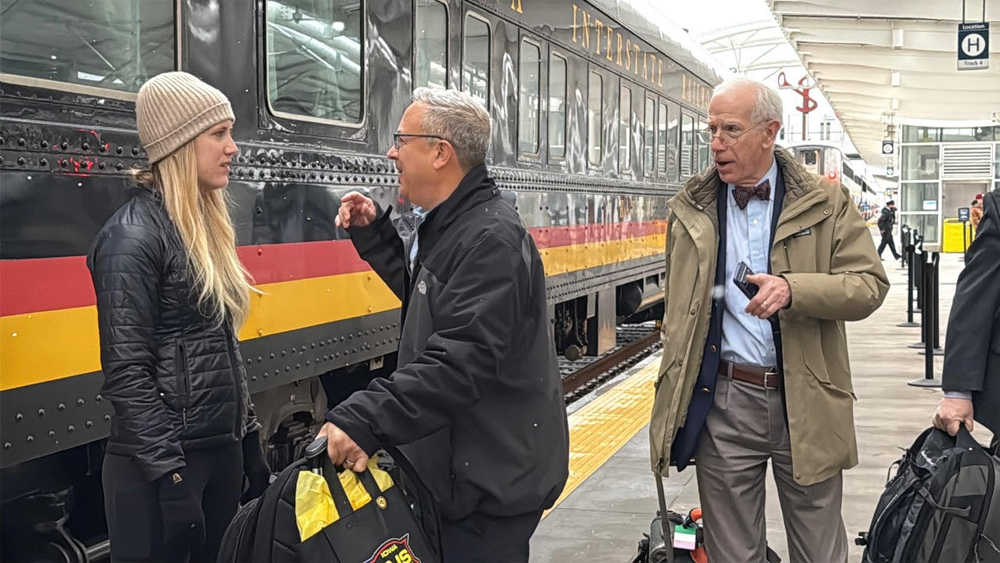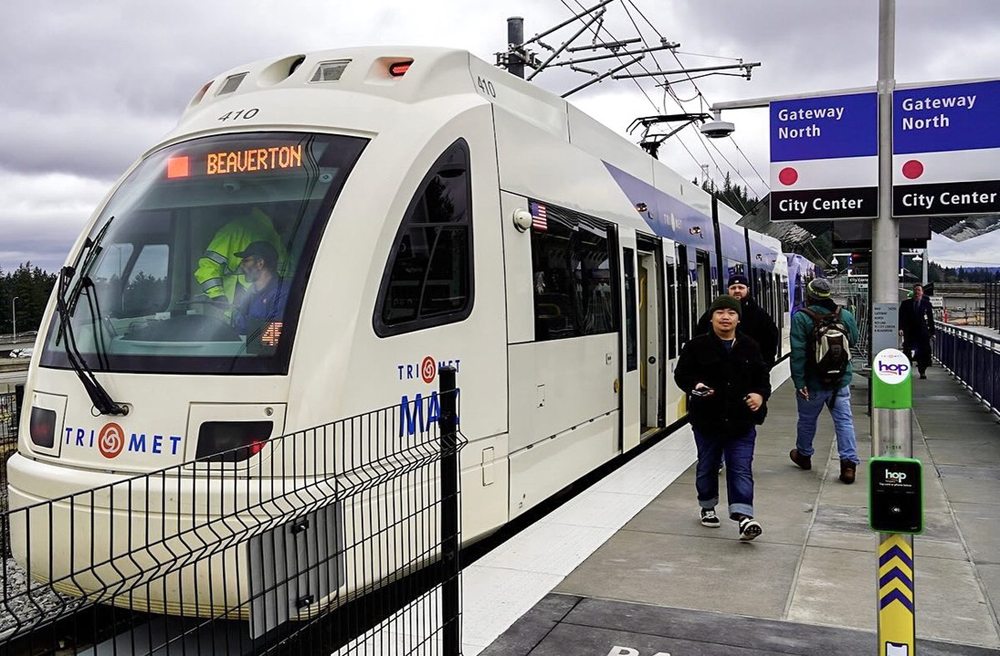
LOWELL, Ark. – J.B. Hunt executives say their intermodal crystal ball is cloudy amid the uncertainty created by U.S. trade policy.
Executives from the largest domestic intermodal operator, speaking on the company’s Tuesday evening earnings call, said customers are focused on the potential impacts of U.S. tariffs and the direction of the overall economy.
“We recognize there are a lot of questions right now about how tariffs may impact the market,” Spencer Frazier, J.B. Hunt’s executive vice president of sales and marketing, told investors and analysts on the company’s earnings call. “We believe they have the potential to impact both supply and demand, but the magnitude and timing is difficult to predict.”
The Trump administration has levied 10% across the board tariffs on imports but also has imposed reciprocal tariffs that are as steep as 145% on Chinese-made goods. The White House says tariffs will bring manufacturing back to the U.S.
“Our customers continue to plan for multiple what-if scenarios, but most of them are waiting for the dust to settle to determine how tariffs might influence and change their short- and long-term business strategies,” Frazier says. “As part of this scenario planning process, some customers are considering ways to alter supply chain freight flows and/or their country of origin sourcing, but these changes will be part of a much longer decision process.”
J.B. Hunt executives say that 20% to 30% of the company’s intermodal business originates on the West Coast, but it’s not clear how much of that volume is tied to China.
Although intermodal profit margins remain challenged, the company set a first quarter intermodal volume record on the heels of record intermodal volume levels in the second half of 2024.
“Volumes in the quarter were up 8% year-over-year, and by month, we’re up 9% in January, up 6% in February, and up 7% in March,” says Darren Field, president of J.B. Hunt’s intermodal division.
J.B. Hunt’s first quarter intermodal volume grew 13% in the East, where its primary partner is Norfolk Southern. Transcon intermodal business, which originates on BNSF Railway, was up 4% for the quarter.
“We also saw very strong volumes in our Mexico business, a market in which we see significant opportunities in the future,” Field says. “I remain encouraged by our demand, particularly in the Eastern network where we face the greatest competition from depressed truck rates. This is a testament to the strong service levels of the rails and how that translates into an attractive and valuable alternative to truck for our customers.”
Field said it was unclear how much of the volume growth was related to importers pulling forward their orders in order to beat the implementation of U.S. tariffs.
As the freight recession enters its third year, J.B. Hunt did not see relief from depressed truck rates, which have put downward pressure on intermodal pricing and profit margins. But the company remains focused on gaining price increases and boosting margins.
Quarterly intermodal revenue climbed 5% for the quarter, to $1.47 billion, but the segment’s operating income declined 7%, to $94.4 million.
J.B. Hunt has been able to achieve some rate increases, Field says, but also has lost intermodal business where customers refused to accept higher rates.
“It is competitive, I will say that,” Field says.
J.B. Hunt’s intermodal segment accounts for 53% of the company’s operating income. Overall, the company’s quarterly revenue declined 1%, operating income slumped 8%, and earnings per share decreased 4%.














CSX reported profits down 27%. GDP contracted -2.8% for first quarter. Tariffs are a tax on Americans; only now are those fooled by 47 learning it. Peter Navarro’s multivariable calculus is off by a factor of 4 i.e. taxes are 400% too high on our partners in trade. This is will prove to be a long downward spiral. The railroads have already lost moving the $25 billion of soybean exports that went to China. China now imports from Brazil and others. That business is not returning as trade now excludes the US in many markets. Global macroeconomics’ mistakes are trickling down.
Yes. Elect a clown; get a circus.